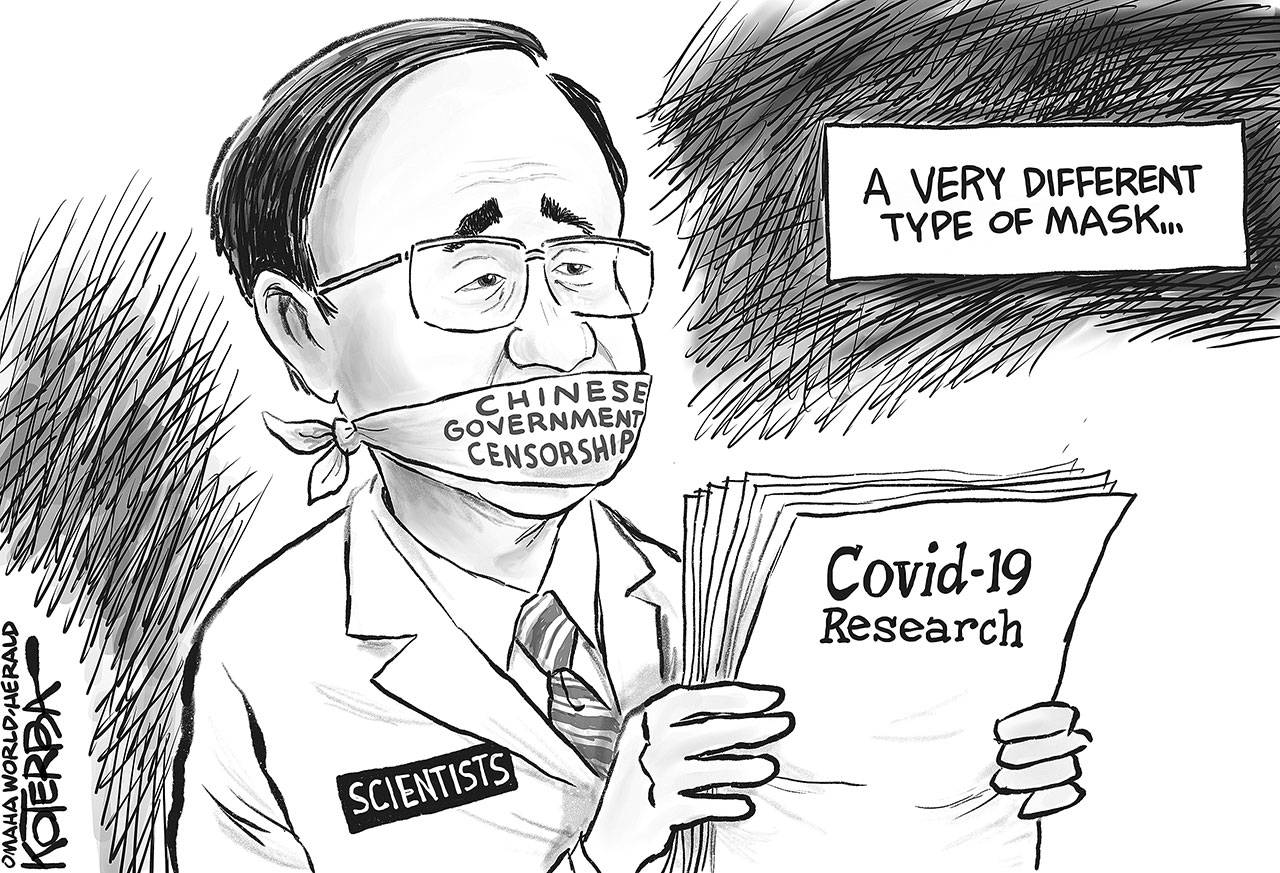President Donald Trump slammed the World Health Organization at a news briefing this week and was immediately accused of scapegoating.
Peter Baker of The New York Times tweeted that “Trump has found a new villain for the coronavirus pandemic,” and The Guardian newspaper described the president as “in an increasingly frantic effort to shift blame.”
There’s no doubt that Trump is inclined to shift blame when possible (and even when it isn’t). He’ll never take ownership of the testing debacle at the outset of our coronavirus response or admit it was wrong initially to minimize the virus.
Yet none of this detracts from the force of his critiques of China (although he blows hot and cold on that) and the WHO, which are at the center of this international catastrophe and must be held to account.
Without China’s deceit and WHO’s solicitude for Beijing, the outbreak might have been more limited, and the world at the very least would have had more time to react. China committed unforgivable sins of commission, affirmatively lying about the outbreak and punishing doctors and disappearing journalists who told the truth, whereas the WHO committed sins of omission — it lacked independence and courage at a moment of great consequence.
In effect, China and the WHO worked together to expose the rest of the world to the virus, at the same time they downplayed its dangers.
China acted as you’d expect. Countries that run gulags aren’t typically noted for their good governance and transparency. The WHO is supposed to be different. It says its values “reflect the principles of human rights, universality and equity.” According to its constitution, “The health of all peoples is fundamental to the attainment of peace and security and is dependent on the fullest co-operation of individuals and States.”
But it’s hard to see how the WHO would have acted any differently if its constitution contained a proviso stipulating that it should validate Chinese propaganda as much as possible, especially in the midst of a world-threatening outbreak of a novel virus.
On Jan. 14, WHO tweeted that “preliminary investigations” by Chinese authorities had found no evidence of human-to-human transmission. Several days later, it reported “limited” human-to-human transmission, although it downplayed the finding as typical of respiratory illnesses. Then, the WHO declined to call the outbreak in China a public health emergency of international concern on Jan. 22, at the same time there were confirmed cases in Taiwan, Australia, Japan, Thailand and South Korea. After the WHO finally declared the emergency, it proceeded to drag its feet on declaring a pandemic, waiting until March 12.
One of the worst things China did was seal off Hubei province from the rest of the country while flights continued around the world. Was the WHO concerned about that? No, it was fully on board. As a headline in Reuters put it in early February, “WHO chief says widespread travel bans not needed to beat China virus.”
Incredibly enough, in late January, WHO Director-General Tedros Adhanom Ghebreyesus was praising Chinese officials for “the transparency they have demonstrated.” Despite the emerging consensus that China has lied about its number of cases and deaths, WHO hasn’t yet said a discouraging word about China’s actions.
It’s been resolute, though, in excluding Taiwan from its workings, just as Beijing dictates. From a public health perspective, this has it exactly backward. Taiwan has proved quite adept at controlling outbreaks and got this one exactly right, in large part because it didn’t believe anything that China or the WHO said.
In a better world, Tedros would resign immediately and the U.S. would make its continued, ample funding of the organization dependent on his departure.
Trump takes more than his share of potshots, but that doesn’t mean he’s always off the mark. China and the WHO are genuine malefactors who deserve all the obloquy the president, and anyone else, can heap on them.
Rich Lowry has been the editor of National Review since 1997. He’s a Fox News political analyst and writes for Politico and Time. He is on Twitter @RichLowry.


